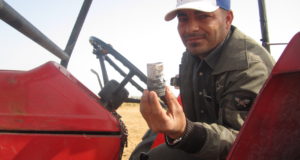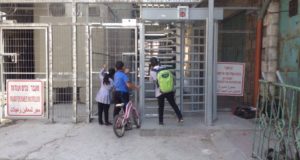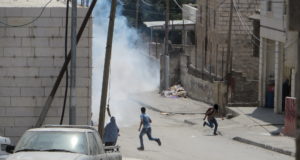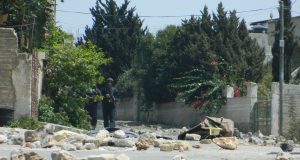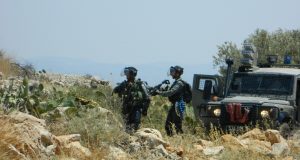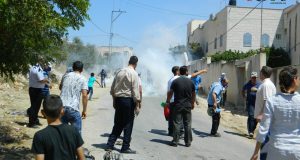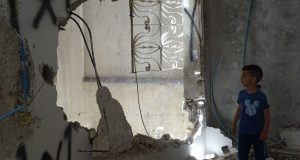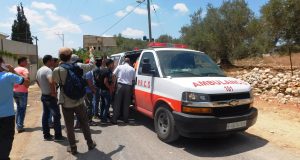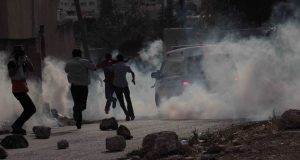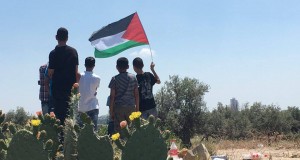3rd September 2016 | International Solidarity Movement, Gaza team | Khan Younis, occupied Palestine According to the Council for European Palestinian Relations the Palestinian agricultural sector’s contribution to the GDP dropped between 1993 (Oslo Accords) and 2009 from 13% to ...
Read More »Achieving education under occupation
31st August 2016 | International Solidarity Movement, al-Khalil team | Hebron, occupied Palestine The 28th of August 2016, a new school year in occupied Palestine has started after a 3-month summer holiday. In the occupied West Bank city of al-Khalil ...
Read More »School-children tear-gassed on 2nd day of school
29th August 2016 | International Solidarity Movement, al-Khalil team | Hebron, occupied Palestine On 29th August 2016 Israeli forces at Salaymeh checkpoint in occupied al-Khalil (Hebron), fired rounds of tear gas as school-children attempted to make their way home through ...
Read More »Israeli Army invades Kafr Qaddum (again)
19th August 2016 | International Solidarity Movement, al-Khalil team | Kafr Qaddum, occupied Palestine The people of Kafr Qaddum again tried protesting against the illegal Israeli military takeover of their village road, by attempting to march on it. Anticipating a demonstration, ...
Read More »Israeli Border Police shoot Palestinian man in Ni’lin
29 July 2016 | International Solidarity Movement, Ramallah team | Ni’lin village, occupied Palestine On Friday afternoon, a group of Palestinian residents of Ni’lin village along with internationals and Israelis, tried to walk to the apartheid wall that cuts off ...
Read More »Kafr Qaddum demonstration met with tear gas
16th July 2016 | International Solidarity Movement, al-Khalil team | Kafr Qaddum, occupied Palestine On the 15th of July in the afternoon, the people of Kafr Kaddum took part in a demonstration against the Israeli Army’s continuing theft of their ...
Read More »Israeli military demolishes two houses, injures five Palestinians with live ammunition in Qalandia Refugee Camp
7th July 2016 | International Solidarity Movement, al-Khalil team | Qalandia Refugee Camp, occupied Palestine The holy month of Ramadan has come to an end. But in Palestine, as in Iraq, Syria, Turkey and too many other places, Muslim families ...
Read More »Two injured with live ammunition as Kafr Qaddum celebrates five years of demonstrations
1st July 2016 | IWPS | Kafr Qaddum, occupied Palestine The 1st July 2016, the last Friday in Ramadan, marked the fifth anniversary of Kafr Qaddum’s demonstrations. The Israeli military were present in the village and firing rubber coated steel ...
Read More »Israeli forces shot 3 youth with live ammunition in just two days in Kafr Qaddum
5th June 2016 | International Solidarity Movement, al-Khalil team | Kafr Qaddum, occupied Palestine On two consecutive days, Israeli forces in Kafr Qaddum village, near Nablus, have shot three Palestinian youth with live ammunition in their hip. The Friday demonstration ...
Read More »Israeli forces attack weekly protests in the West Bank
2nd May 2016 | International Solidarity Movement, al-Khalil team | Deir Istiya, Kafr Qaddum, Ni’lin; occupied Palestine Last week, as every week, Israeli forces attacked demonstrations in the West Bank against the illegal Israeli land-theft, the apartheid-wall and illegal Israeli ...
Read More » International Solidarity Movement Nonviolence. Justice. Freedom.
International Solidarity Movement Nonviolence. Justice. Freedom.
